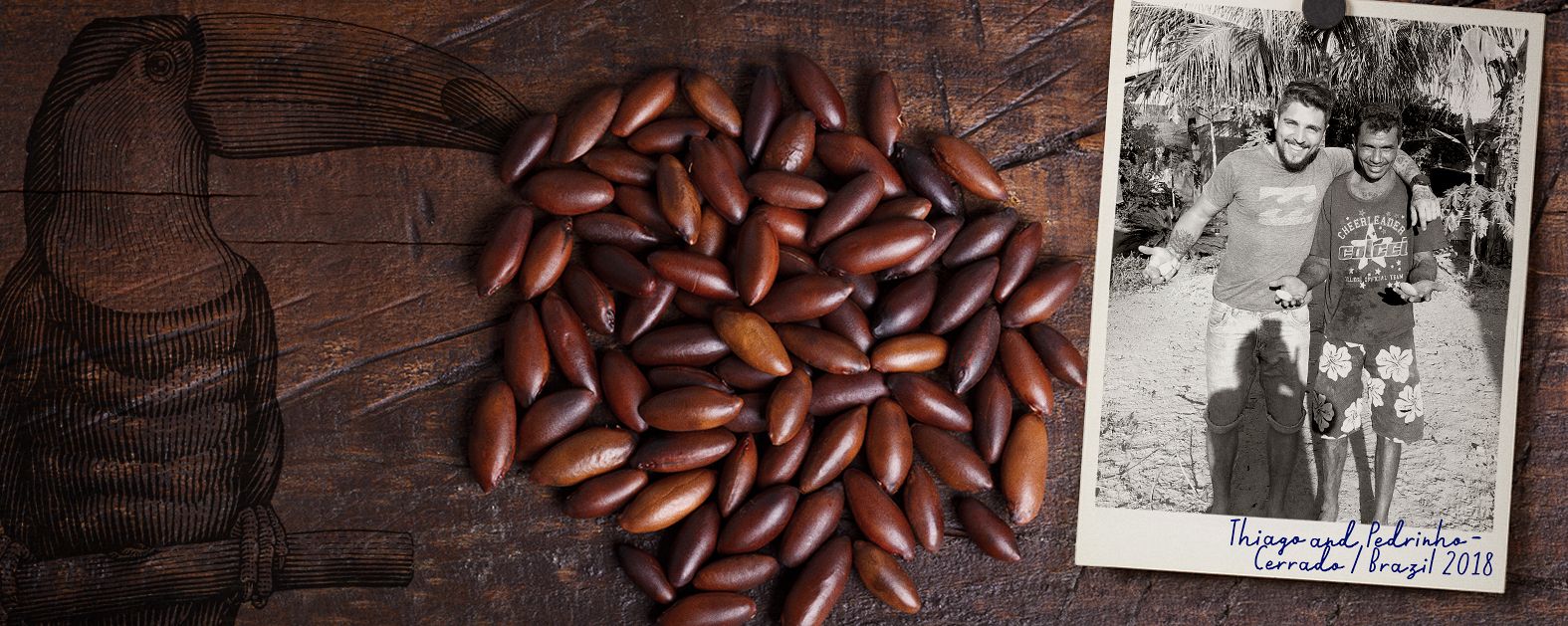The Baru Project … introducing Australia to the delicious and nutritious baru nut

We were very honoured at Hill Street to debut baru nuts in Australia with The Baru Project, just over one year ago. The Baru Project’s wild grown naturally organic baru nuts have become a favourite of many customers, who say that they taste like an amazing combination of a peanut and an almond, and that they can feel their magic working in their bodies. While not yet a well-known food, even in Brazil where they come from, baru nuts are now under the spotlight, since ‘super-food hunters’ and food scientists discovered them and believe them to be the most nutritious nut in the world.
The Baru Project began with an idea to bring baru to Australia by Anna and her Brazilian husband Ricardo. Anna discovered the baru nut while living in Brazil and today The Baru Project is made up of Anna and Ricardo in Australia and Thiago and Vanessa in Brazil, who work alongside two local rural workers, Pedrinho and Lucienne to forage for and process the nuts.
In addition to the baru nut’s nutritional benefits and taste, The Baru Project is having a positive social and environmental impact. The Baru Project believes that sustainability is not enough and that we need to focus on maximising our positive impact on earth using regenerative practices. The baru tree is an essential plant in the preservation and restoration of the Cerrado biome, one of the most threatened ecosystems in the world. The Cerrado covers more than a quarter of Brazil and like the Amazon is suffering from rapid clearance. Its biggest threats are the large-scale logging, agriculture and mining industries. The growing baru industry is providing an economic incentive to keep vulnerable Baru trees standing as well as plant more trees. The region is sometimes referred to as the upside-down forest because 75% of its plant mass is underground. And beneath this layer of plant mass lies the largest underground freshwater reservoirs in the world. Deforestation and destructive farming practices though are causing the soil to dehydrate and erode and this in turn is decreasing the water quality of the underground reservoirs and connected rivers. Baru trees with their especially deep roots, nourish the soil, provide structural support to the soil and purify nearby water sources.
The Baru Project follow indigenous traditions, for example, only harvesting approximately two thirds of each tree’s harvest and follow the regenerative syntropic farming method. They have recently planted what they believe to be the first syntropic baru farm in Brazil; this farm will regenerate that land’s native ecosystem while simultaneously producing baru fruit and other produce.
The Baru Project is already providing meaningful and valuable employment opportunities and the team are hoping that as the nuts become more popular in Australia, they will be able to offer more much needed ethical employment opportunities to Cerrado locals, in an area of the world that is facing the risks of large-scale industry, including modern-slavery.

